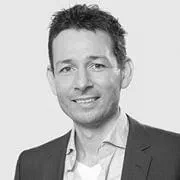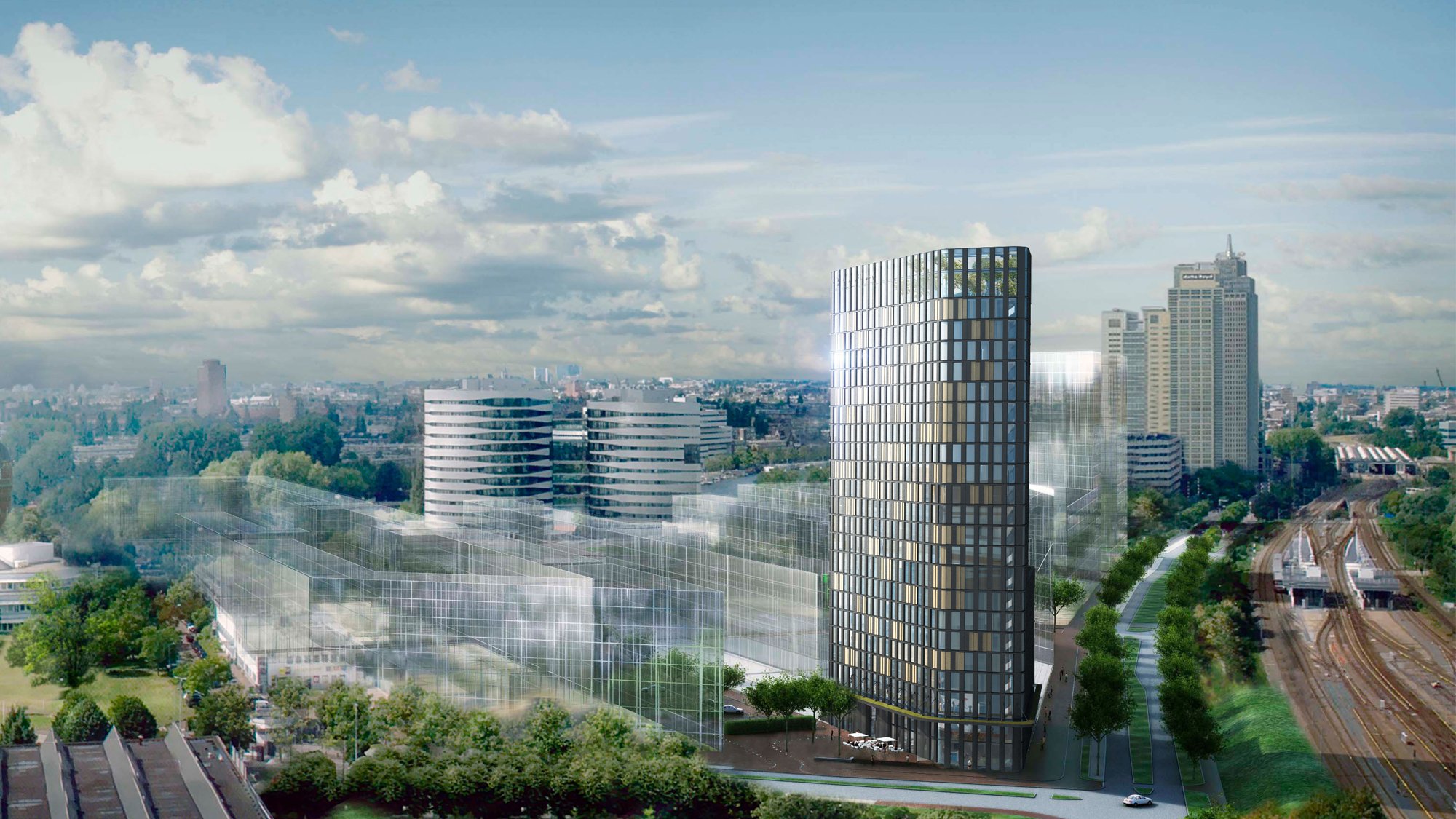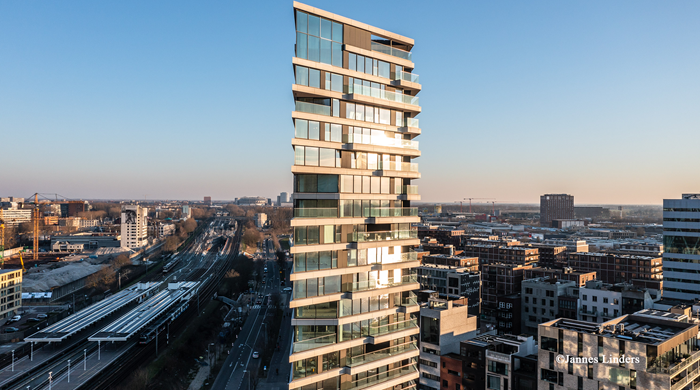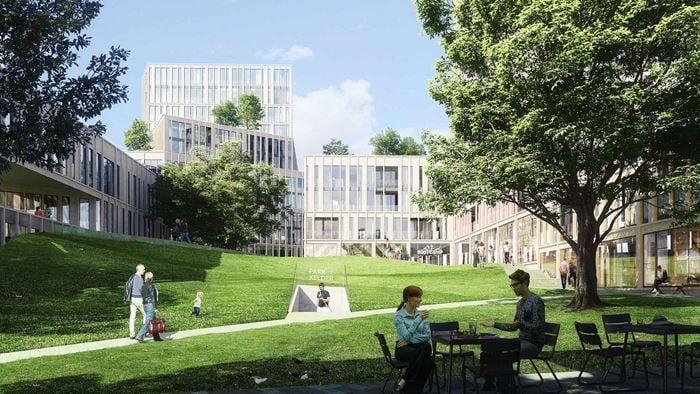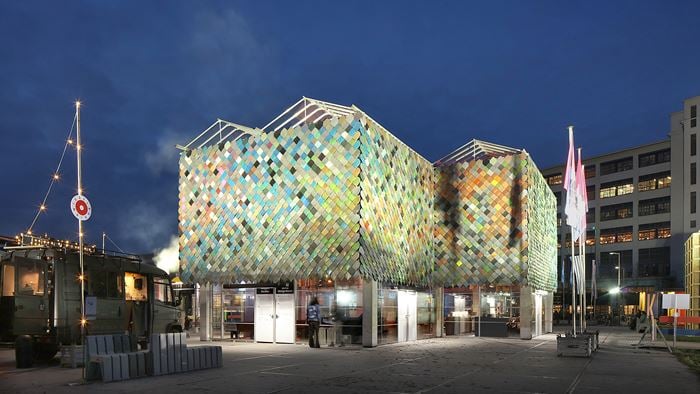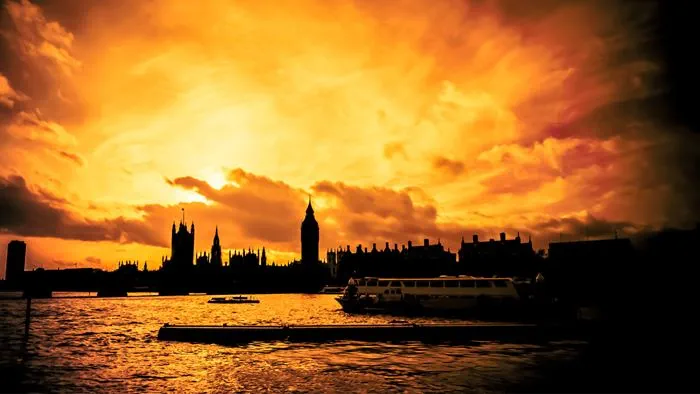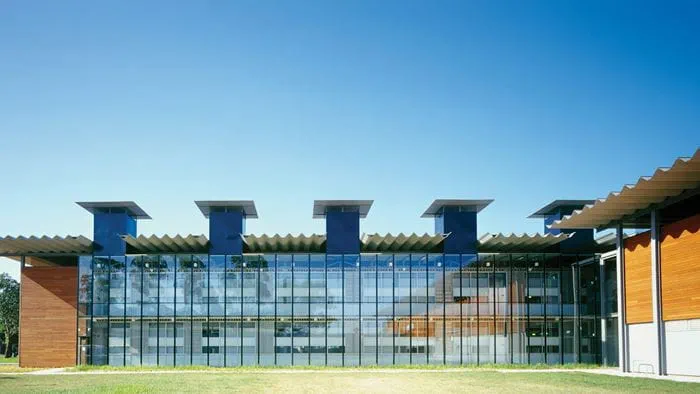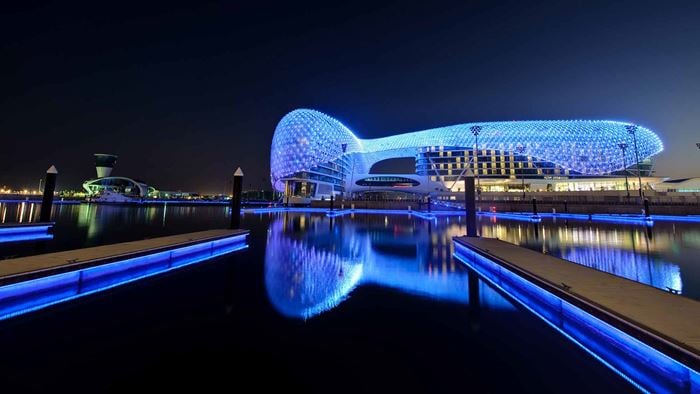Sustainability fuels the design, construction and operation of the QO Hotel Amsterdam – a destination that frames its vision according to the motto 'treating life well'. We led the technical approach to several solutions, such as a green house on the roof where vegetables and herbs are grown via aquaponics, a smart façade system based on algorithms and an energy system from waste.
Designed by the team of Paul de Ruiter Architects, Mulderblauw Architects and Arup, the four-star hotel is among the first in Europe to achieve a LEED Platinum certification – an internationally recognised sustainability standard. Assisting to reach this milestone, we provided our expertise by conceptualising the hotel’s sustainability model, in addition to delivering building services and fire engineering.
Project Summary
819 panels intelligent facade
90%energy savingfor cooling
65%energy savingfor heating
QO Amsterdam
Intelligent hotel façade
The hotel’s façade provides an insight into how sustainability is integrated into the building’s functionality. The position of the 819 individually moveable façade panels respond to the desired room temperature and the outdoor climate. Each panel automatically closes position based on an intricate algorithm, which creates an energy balance for each individual room without using additional energy for heating, cooling or ventilation.
The system detects when a guest leaves the hotel, initiating a change in the climate-control system and façade composition. This subsequently creates a dynamic and ever-changing outward appearance of the hotel.
The insulating panels limit heat loss, while also reflecting excessive sun light when necessary. The transparent floor-to-ceiling windows are designed to utilise passive solar energy, aiding the operation of the climate-control system.
Circular principles: waste becomes energy
We crafted the sustainable design around a circular economy concept, following the notion in which waste from one part of the ecosystem becomes food for another. Although not visible to hotel guests, the building’s energy system puts this principle into practice. Surplus heat in summer is collected and stored in a ground source energy system and reused to heat the hotel in colder winter months. During the winter, cold water is stored underground so that it can be retrieved to help cool the building during warmer weather.
Electricity is produced by another source of local waste; cooking oil from the hotel’s busy kitchens. Using this culinary by-product, a cogeneration system generates electricity while creating additional heat. Keeping in line with the sustainable ethos of the hotel’s design, this excess heat is then used to provide warm water for guests and staff.
Urban farming
The QO highlights its commitment to the circle of life concept by bridging the gap between an urban environment and local, homegrown food. This idea is put into practice in Persijn, the hotel’s restaurant, which uses seasonal and local food to bring visitors the best of Dutch cuisine. Urban farming is a reality here, with some of the food harvested within the building itself, on the 21st floor of the hotel, providing a truly fresh and unique local food experience in the restaurant.
The greenhouse uses aquaponics; this is a system in which plants and fish are grown together as part of a mutually beneficial relationship. Waste from the fish is used as nutrients for the plants, which in turn filter the water for the fish. Furthermore, compostable waste from the kitchen is used as fertiliser for the greenhouse, reinforcing how sustainability permeates the hotel’s different levels of operation.
Water – a renewable resource
Water plays a vital role in every hotel and provides an imperative service to guests. The QO’s water system supports the 'circle of life' principle through a grey water circuit, which uses filtered water from the showers and baths to flush the toilets. The waste toilet water is reused to generate energy to help heat the building during colder weather.
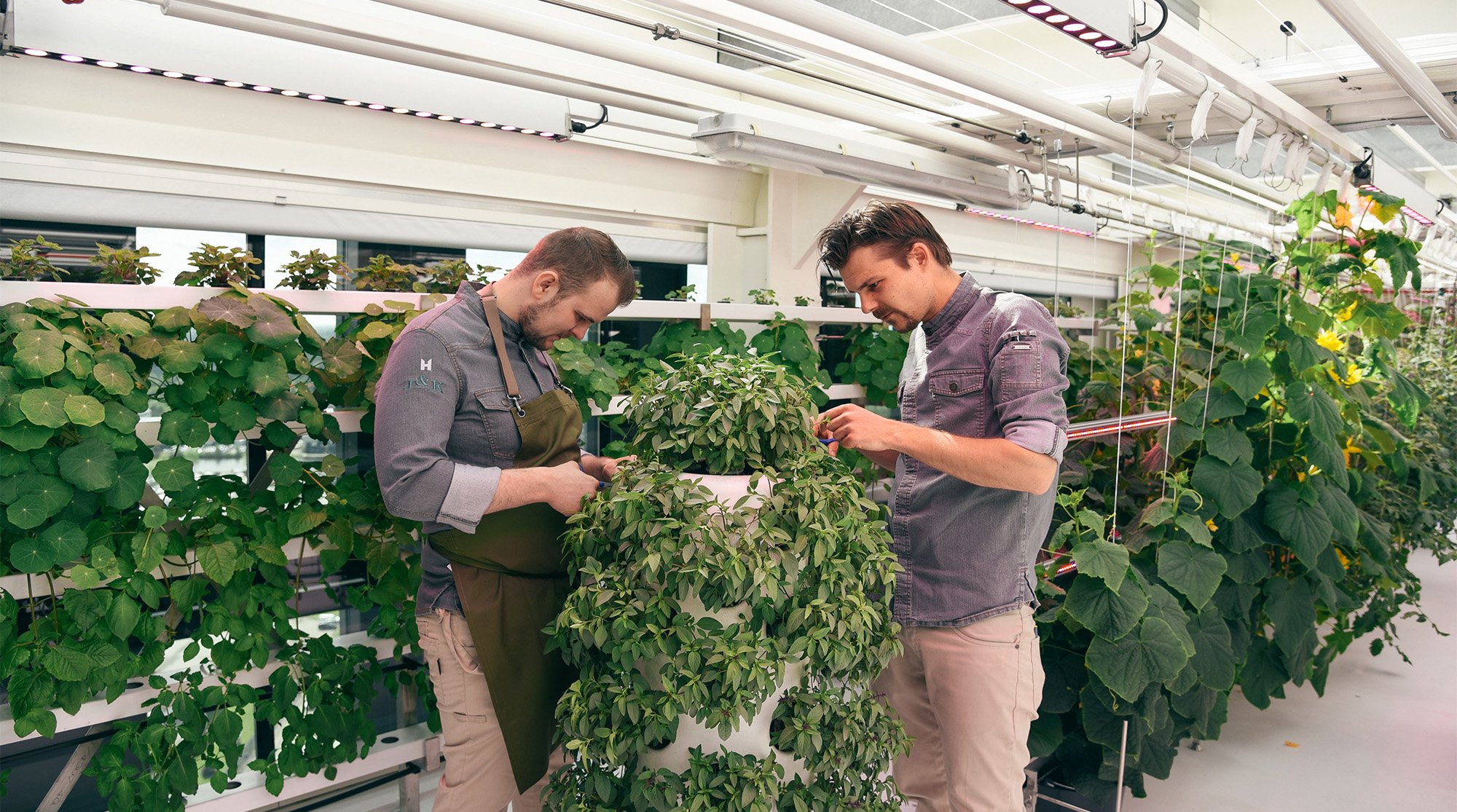 ;
;
